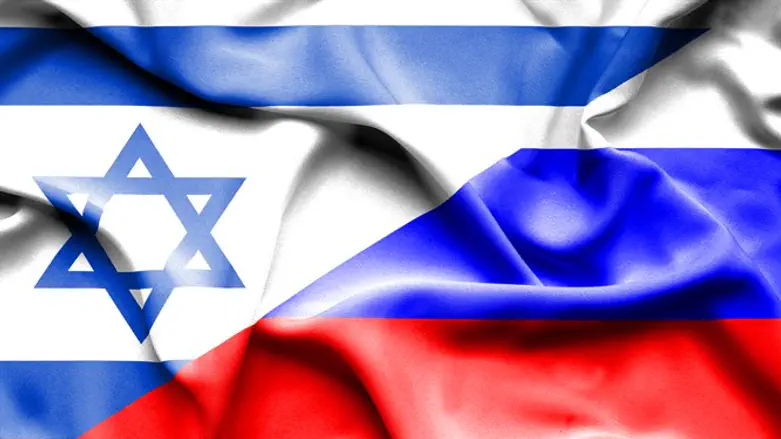
Amid tightening of economic cooperation between Russia and Israel, their trade has grown in 2017 by 25 percent, officials from both countries revealed.
The increase in the first six months of 2017 was over $380 million in trade that exchanged hands between Russia and Israel in the corresponding period the previous year.
Environmental Protection Minister Zeev Elkin (Likud), who also serves as Jerusalem Affairs Minister, announced these figures earlier this week at a conference in Moscow about Russian-Israel relations.
“There is still great potential for increase in trade and there is much work ahead of us,” Elkin said in reference to ongoing talks since 2013 on signing a free trade agreement with Russia.
The increase comes amid tight cooperation between Israel and Russia on security issues connected with Syria, where the Russian government is helping Syrian President Bashar al-Assad. The Russians helped Assad regain much of the territory lost to forces loyal to him since the outbreak of a bloody and brutal civil war in Syrian in 2011.
The Russian involvement in Syria on behalf of Assad has complicated Russia’s relations with Turkey, which has aided some forces fighting Assad. The countries’ disagreement on foreign relations has soured trade, with Russia destroying and declining thousands of tons of agricultural produce from Turkey. Russia claimed the produce were diseased but Turkish officials said the move was political.
Separately, Russia’s trade with the European Union and the United States has also suffered due to sanctions imposed against Russia by the West over its invasion in 2014 and annexation of land from Ukraine.
During that period, Russia’s relations with Israel, which has remained neutral both on the Syrian issue as on Ukraine, have noticeably improved, with Israeli Prime Minister Binyamin Netanyahu traveling to Moscow at least five times in the space of one year.
The strengthening of the Russian rubel, which had lost half of its value against the dollar due to dropping oil prices, also facilitated Russian entity’s capacity for conducting international trade.
But Temur Ben Yehuda, chairman of the Israeli-Russian Business Council, which co-sponsored the conference where Elkin and other official attended, cited primarily the attractiveness of Israeli businesses to Russian counterparts and visa versa in explaining the increase in trade between Russia and Israel.
“We are not only conducting dialog on increasing trade, we are also signing major agreements between Israel and Russian firms, including Watergen, Assuta and many others,” he said.